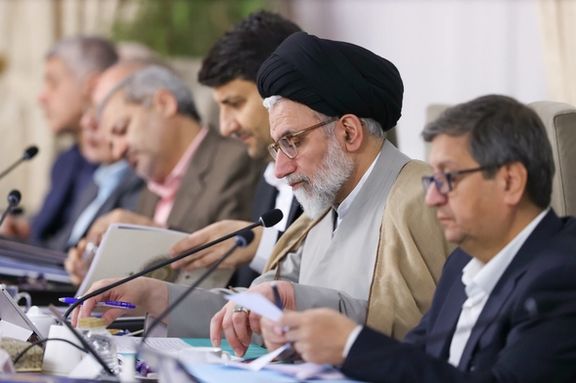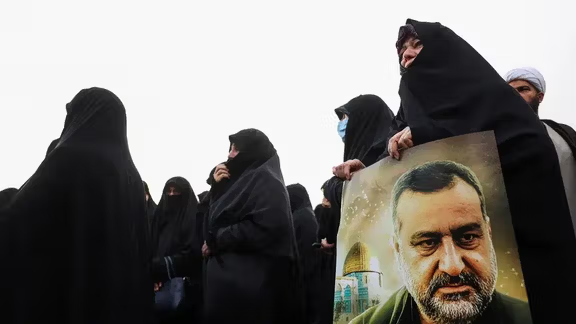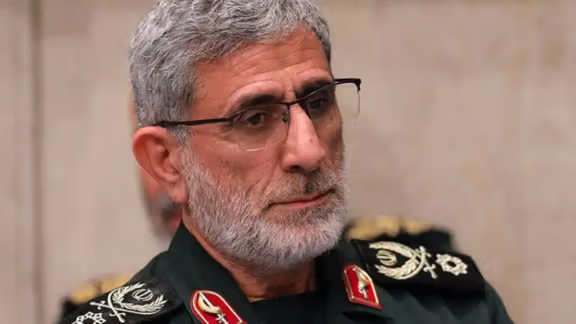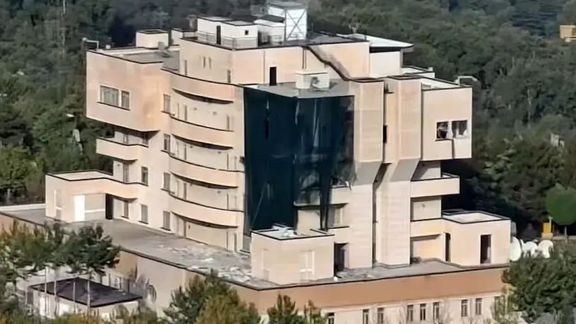Iran’s intelligence system under fire amid accusations of Israeli infiltration

Iran's intelligence services are facing internal and external criticism amid accusations of failures to confront Israel's security threats and allegations of espionage.

Iran's intelligence services are facing internal and external criticism amid accusations of failures to confront Israel's security threats and allegations of espionage.
Mehdi Kharatian, who leads the Institute for Policy Revival, has led the criticism surrounding the weaknesses in Iran's security and intelligence infrastructure, highlighting what he described as a lack of serious response to Israeli activities, citing the killing of Seyed Razi Mousavi in Syria last December as a prime example.
Mousavi, linked to the Revolutionary Guards, was killed in a strike widely attributed to Israel. Kharatian criticized the response from Iranian intelligence agencies. “The day after the assassination, everyone was home by 2 p.m.” he said, implying that security forces did not treat the incident as a critical alert. "They just say Netanyahu wanted to fabricate achievements. But they should analyze why Israel decided to act at this moment."

The criticisms come as Iran faces a series of high-profile allegations involving intelligence officials accused of collaborating with Israeli agencies. Among the most recent cases is Esmail Qaani, commander of the elite Quds Force of the Revolutionary Guards, who was reportedly placed under guard and questioned as part of an investigation into significant security breaches.
Iran has officially denied the claims. Multiple sources told Middle East Eye that while Qaani remains alive and unhurt, his status reflects the growing concern over internal vulnerabilities.

Kharatian said Iran consistently underestimates Israel’s capabilities in information and cyber warfare. "Israel's upper hand in the information war casts a shadow over all our achievements," he stated.
Kharatian further accused Iranian intelligence of misallocating resources away from essential functions. He referenced a conversation with a deputy in the intelligence service, noting, "I pointed out the mistakes of the head of the intelligence agency… strategic mistakes were made." According to Kharatian, this included diverting funds to less critical areas, weakening the country’s capacity to respond to external threats.
The Iranian intelligence apparatus is also faulted for prioritizing internal surveillance over external threats like Israel.
Kharatian suggested that efforts have been focused on monitoring domestic dissidents, including high-profile figures such as Faezeh Hashemi, the daughter of a former Iranian president, or the vocal political commentator Sadegh Zibakalam, rather than countering Israeli operations.
"Either drop the 'Death to Israel' slogan or stop making it a hundredth priority in intelligence departments," he said.
The criticisms extend beyond intelligence agencies. Iran’s diplomatic stance is also under fire, with Kharatian pointing out the lack of an “Israel desk” in the Ministry of Foreign Affairs, something even countries like Pakistan maintain.
"We don’t even have an Israel desk," he said, emphasizing that the absence of a specialized diplomatic effort further highlights gaps in Iran’s approach to the Israeli threat.
Meanwhile, questions about intelligence competence have grown in the wake of recent incidents.
In July, an alleged Israeli airstrike saw the political leader of Iran-backed Hamas, Ismail Haniyeh, assassinated in the heart of Iran's security apparatus at an IRGC compound in Tehran.
Former Iranian parliament member Morteza Motahari publicly criticized security services for failing to protect the location. "The Zionists have always relied on terror, but how did they know his residence?" he wrote on social media.

Earlier this month, in an interview with CNN Turk, former president Mahmoud Ahmadinejad accused the head of a counter-intelligence unit assigned to identify Israeli operatives as himself a Mossad agent.
Ahmadinejad added that the official, along with others, leaked sensitive intelligence, including documents about Iran’s nuclear program, to Israel. These leaks, he suggested, influenced the Trump administration’s decision to withdraw from the 2015 nuclear deal.
Ahmadinejad alleged that an additional 20 agents within the Iranian intelligence team, assigned to monitor Israeli espionage activities, had also defected and were working against Tehran.
After the high-profile killing of Hezbollah leader Hassan Nasrallah, Iran's most powerful proxy, by an alleged Israeli airstrike in Beirut, the threats to Tehran's key circle have become ever more real, highlighting a series of intelligence shortcomings, including in the heart of Tehran.